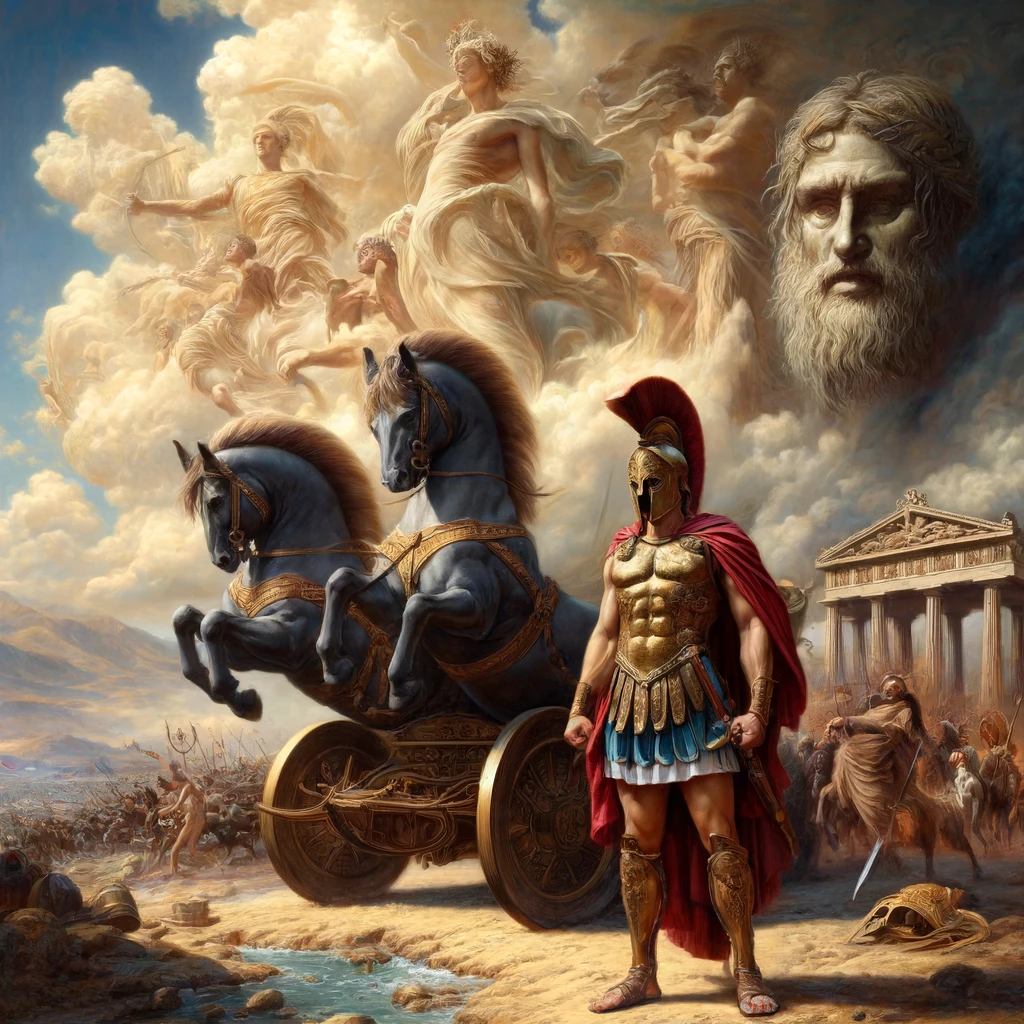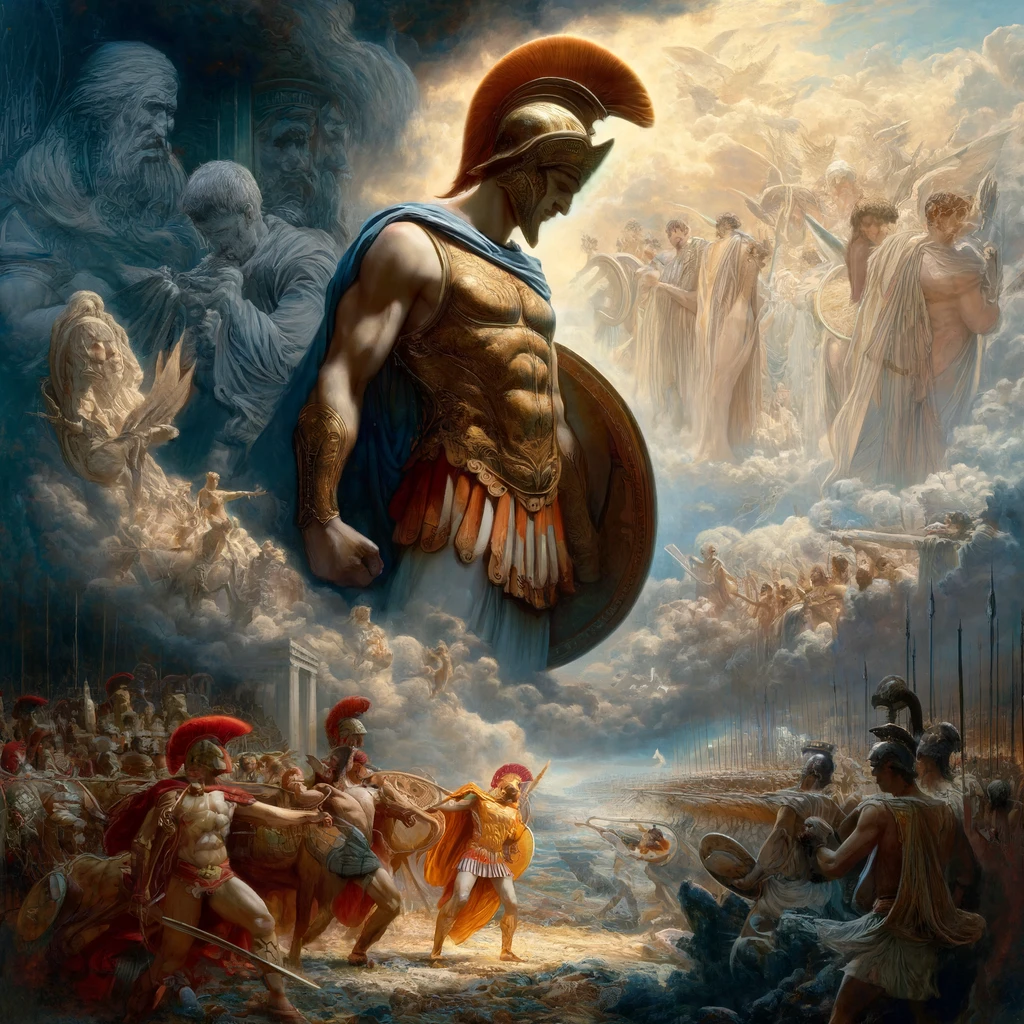“The Iliad” by Homer is an ancient Greek epic poem that holds a pivotal place in Western literature, captivating readers with its complex tale of heroism, honor, and the divine machinations of gods. It unfolds against the backdrop of the legendary siege of Troy, weaving a narrative that has influenced countless works of literature and thought.
At the heart of “The Iliad” is a deep and rich characterization, particularly of Achilles, the central figure whose prowess in battle is unmatched. Achilles’ narrative arc is driven by intense personal and emotional conflicts, notably his dispute with Agamemnon, the leader of the Greek forces. This conflict introduces themes of pride, loyalty, and the consequences of wrath, which are recurrent throughout the poem. The depth of these characters and their relationships are a testament to Homer’s skill in portraying complex human emotions and motivations.
A defining feature of the epic is the significant role played by the gods, who frequently intervene in human affairs, thus embodying the Greek belief in predetermination and divine influence. These interventions often reflect the gods’ petty rivalries and alliances, which parallel the human conflicts on the ground, suggesting that the divine might be just as fallible as mortals. This interplay between divine and human spheres emphasizes the theme of fate, where even the greatest heroes seem unable to escape their destinies, dictated by both divine will and their own character flaws.

Homer’s detailed accounts of battles are not only thrilling narratives of conflict but also serve as a canvas to explore ancient Greek warfare and strategies. These battles, filled with strategic maneuvers and heroic duels, glorify the warriors’ valor while simultaneously exposing the brutal realities and profound tragedies of war. Through these depictions, Homer conveys the harsh consequences of war, making “The Iliad” a timeless reflection on both the glory and the futility of such conflicts.
“The Iliad” is also rich in philosophical and ethical insights, delving into questions of morality, the nature of heroism, and the human condition. It challenges the reader to consider the meaning of honor and the impact of legacy, exploring how individuals navigate the moral dilemmas posed by war. The epic’s enduring relevance lies in its ability to portray these universal themes through a narrative that combines historical mythology with deep human truths.
Overall, “The Iliad” remains a seminal work not only for its narrative and historical significance but also for its profound insights into the complexities of human behavior and the often inextricable link between our fates and our choices. Its blend of action, character development, and moral inquiry ensures that it continues to be a subject of study and admiration in the literary world.


